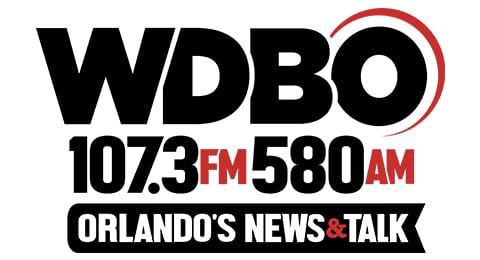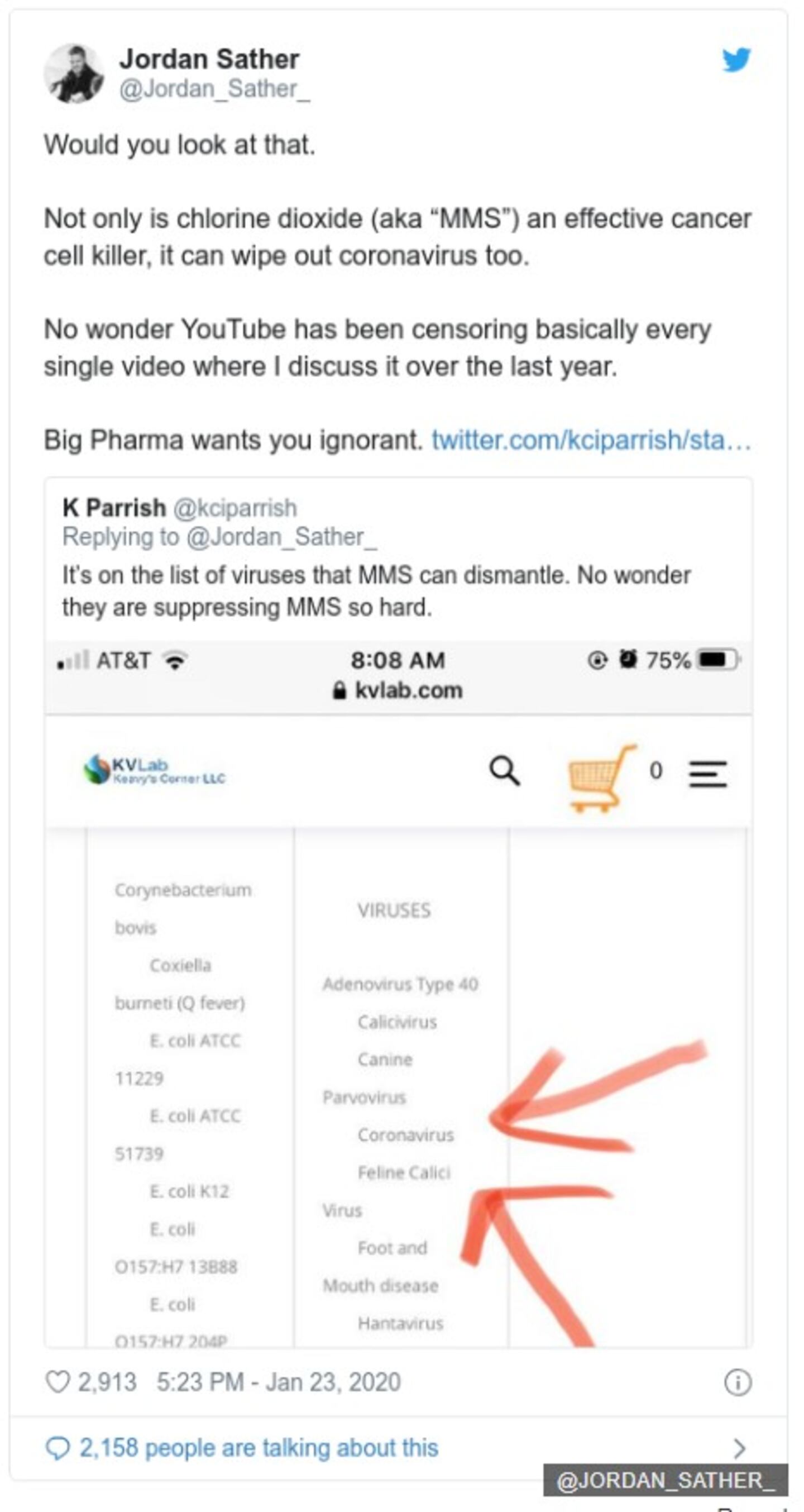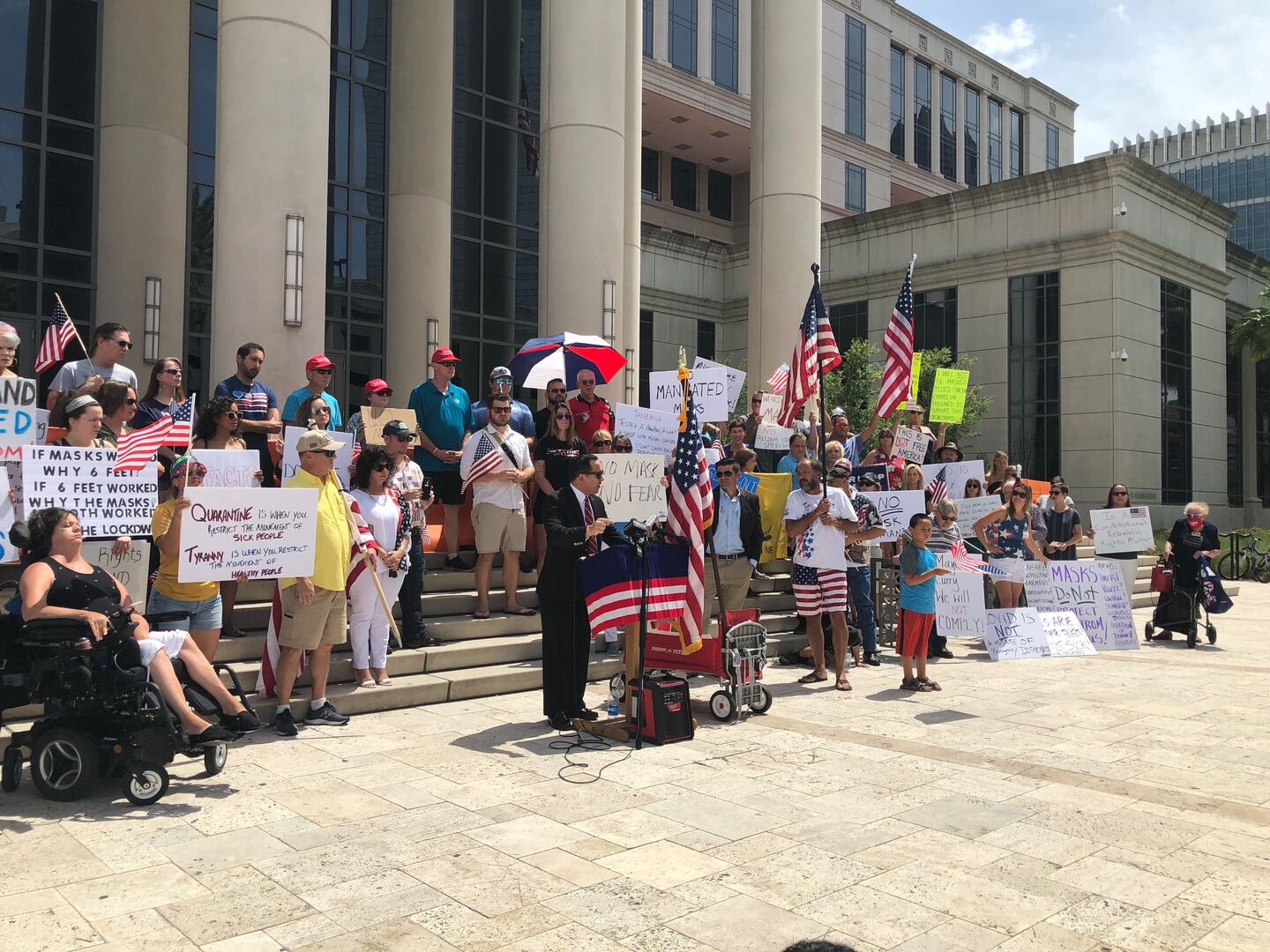Orlando, Fla. — In the U.S.A., individual rights are an essential part of our culture.
Is that why some feel mask-mandates are illegal? Could it explain why people believe strangers on the internet more than scientific research?
Fake news was a problem in this country long before COVID-19 arrived and spread to more than 5 million people.
Today, however, there’s a lot more at stake.
Since the start of the pandemic, the Centers for Disease Control and Prevention (CDC) has warned the novel coronavirus can be spread from person-to-person in close contact.
Recommendations for how to prevent the spread, though, have changed since the first documented case in the U.S.
Those constant changes have spurred a passionate distrust in the CDC, the government, and the scientific community as a whole.
“We’re seeing push back against some of the measures recommended to prevent the spread of the illness,” says Chrysalis Wright, a psychology professor at the University of Central Florida.
She thinks the push back is due to a large volume of social media users believing and sharing the fake news they see about the virus.
But Wright says it also may have something to do with Americans’ displeasure with being told what to do.
Defining Fake COVID-19 News
Do you know what your biases are? We all have preconceived notions about certain people, places, or political parties.
On social media websites like Facebook and Twitter, it’s easy to indulge those biases by following personalities and accounts that spread messages that fall in line with your worldview.
“And when we do that, it polarizes us,” says Wright.
Fake news is information that is untrue, often created deliberately as propaganda or by mistake as simple misunderstandings.
Here is an example of fake news with an apparent agenda:
Other fakes news comes in the form of misconceptions.
For example, in March, Okeechobee County Commissioner Bryant Culpepper shared information he says he learned about how to kill the deadly virus by using a blow dryer up the nose.
Okeechobee County Commissioner Bryant Culpepper at emergency meeting says you can kill coronavirus by holding a blow dryer up to your nose after he saw it on “reliable source” OANN, warns “there’s a lot of baloney out there on social media” #BecauseFlorida pic.twitter.com/n9dGDBQ4WW
— Billy Corben (@BillyCorben) March 22, 2020
Culpepper said he got that information from a doctor that on a One America News Network (OANN) program.
But that turned out to be incorrect, according to the network.
Doctors from various specialties have debunked the blow dryer claim.
Spotting Fake News About COVID-19
Wright says ‘fake news’ has become increasingly political, especially as the COVID-19 outbreak in the U.S. grew.
As coronavirus cases began to rise sharply in mid-March, governments at all levels began to implement new policies to slow the spread.
But the government’s response to the pandemic has been somewhat partisan, according to Pew Research.
Some states were quicker than others to implement mask mandates, the first two being New Jersey and New York—both led by Democratic governors.
So far, only Republican leaders have spearheaded lawsuits against government-required mask rules.
This ideological split is also apparent in the corresponding parties’ supporters.
While social media platforms are policing fake news by flagging or even removing posts, there are a few ways to identify possibly inaccurate or made-up articles or memes.
Here are a few:
What’s the source? Vague or unfamiliar sources such as a ‘doctor friend-of-a-friend’ or ‘a family member who works at a hospital’ are suspicious sources and are typically untrustworthy .
Made you click. If the post makes you angry or overjoyed, be aware that creators of these posts know well that messages that elicit an emotional response are shared more often.
F@ke Account. Some users try to mimic well-known social media accounts, websites, and handles to make you think the information is from a source you recognize.
What’s in it for you? When you read an extraordinary claim about a person or organization, think about who stands to gain from you believing it.
‘My rights!’ America’s Individualistic Culture
Americans cherish individual freedoms.
In fact, they’ve been a part of the framework of our society for 229 years in the form of The Bill of Rights.
Naturally, Americans don’t like the idea of the government telling them what to do.
Professor Wright on this topic as it relates to the U.S. pandemic response:
“This is why each state has different laws, even counties, within each state are very different.”
Wright says that causes society to push back when we feel our government is overstepping their boundaries, in terms of passing regulations.
“That mentality of trying to maintain freedoms that we already have is part of the reason people are more open to believing the false information that’s out there,” Wright adds.
The U.S. has a track record of limiting individual freedoms, in the name of public safety.
For example, drunk and impaired driving. By criminalizing the act of driving while under the influence of drugs or alcohol, the right of the individual is compromised for the safety of the people around them.
Our society even passes laws to protect non-humans.
America’s individualistic culture, however, stresses that people should be able to solve problems on their own.
Can we trust citizens will follow the advice from the CDC to stop the spread of COVID-19 without being ordered to (i.e. wearing face coverings and socially distancing)?
Many local and state leaders have decided no, implementing emergency orders to protect the health and safety of the general public.
Can we trust users to recognize fake news and refrain from perpetuating dangerously false information?
Social media giants, such as Facebook and Twitter, have moved in to combat the spread of coronavirus misinformation from their platforms, even if it comes from the U.S. President.
Wright concludes her interview saying, it’s a tricky situation.
“It seems like, at this point, consumer education is not enough to fight this issue with COVID and the fake news,” she says.
“At this point, it can actually be deadly.”
Listen to part of Katrina’s conversation with Professor Chrysalis Wright here.
Cox Media Group











